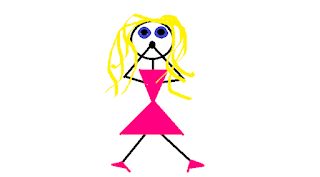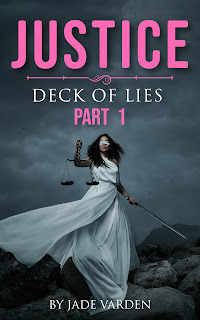Jade Varden's Blog
November 6, 2023
Does ChatGPT Spell Doom for Writers?
Look around at the world and notice not what is there…but who is missing. No longer will you see a man on stilts at twilight, meticulously lighting gas lamps up and down the street. You won't find a friendly milkman making deliveries. And the men wearing the long beaks who scooped up plague-ridden bodies were out of work in the 1400s. Innovation and technology always usher in new changes. But when something new begins, something else ends. And when it comes to ChatGPT, is this the end of human writing as we know it?
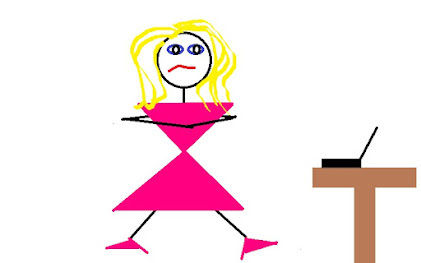
So what is ChatGPT? Depending on who is answering, this is a fascinating new innovation full of possibilities...or a demon invention summoned from the blackest pits of Hell. ChatGPT is actually an AI writing tool that can, for all intents and purposes, write anything. Articles, screenplays, entire novels even. You plug in some basic elements of what you want and the darn thing generates humanlike writing that can be difficult to tell from actual human-created content.
And if learning about ChatGPT gives you a strange sinking feeling and you feel the darkness of despair creeping ever closer to you, then you are probably a writer. You might even find yourself wondering if you're about to join the ranks of the now-useless, like those plague guys or the old gas lamp lighters.
The recent writer's strike largely involved ChatGPT and concerns about how this tech will be used moving forward, though many of the headlines focused on pay disputes and other issues surrounding the strike.
Writers on all levels have reason to be curious and cautious about this tech. For the first time in human history, a machine can write dialogue and plot and actually tell a story. So you might feel a lot like the gas lamp guy the day the light bulb was invented.
And yes, it is a little bit scary. AI writing software is sophisticated enough to understand grammar and syntax and even slang. It can churn out entire novels with extreme quickness and write words much faster than any human ever could.
But don't throw out your old plague mask yet, so to speak. Because for all their sophistication, there is something that machines and tech can never do: create ideas.
You can teach a computer how to write like a human and play chess like a human and answer questions like a human would. You cannot teach a computer how to actually be creative. Computers can study all of literature and can even create stories that are similar to stores created before. But a computer will never truly come up with a creative idea for one very good reason.
Only humans can do that. Only humans can invent. No computer program can really be taught how to do that. And as long as that continues to be the case, human writers are still needed.
October 30, 2023
A Writer’s Tale
Though not as flashy as Shakespeare or as strange as Lewis Carroll, Geoffrey Chaucer contributed much more to the English language as a writer than both of them put together. He is called the Father of English literature and is single-handedly responsible for creating nearly 2,000 words that we use today. He was the very first person to be interred at Westminster in the famed Poet’s Corner and his stories were so good, Heath Ledger and the future Vision actor starred in an adaptation of his work about 600 years after he wrote it. What’s ironic is that the author best known for the Canterbury Tales never made a single cent off his writing.
 The Merchant of London
The Merchant of London
Geoffrey Chaucer was born into the merchant class into rather fortunate circumstances. His father was a successful vintner, winemaker, and he worked for the crown for most of his career -- even when the crown changed heads a few times during the tumultuous Hundred Years’ War.
Remembered today as one of the great writers and studied in schools the world over, Chaucer was a diplomat, a courtier, a soldier and a clerk to the King, among other things. He was, for all intents and purposes, a government employee…and he was not really a rich man. He was a merchant, not a Lord or a noble, and he almost never stopped working -- proof that he needed money to live, just like anyone else.
Somewhere in the midst of this busy life, Chaucer became one of the greatest poets the world has ever known. History does not show any record that Chaucer ever received any money for his work but he did, perhaps, receive some acclaim. During a St. George’s Day celebration in 1374, King Edward III rewarded Chaucer with a gallon of wine every day for the rest of his life. This is probably the only payment he ever received for writing some of the greatest works in the English language. And for shaping the English language.
Chaucer did make good on the King’s promise, collecting his gallon of wine daily until the crown shifted to Richard II. It was then that Chaucer began to receive a monetary grant but by then, he was employed as a comptroller for the port of London so the salary may be tied to this position.
Geoffrey Chaucer was the first to be interred at what is now known as Poet’s Corner in Westminster. Today, he keeps company with the likes of William Shakespeare, Charles Dickens, Rudyard Kipling and Lord Tennyson.
Like many modern writers, Chaucer worked every day of his life and wrote in his free time. He invented thousands of words, which is beyond remarkable, and wrote a book that people are still reading 500 years after his death.
Chaucer did not write for money, because he didn’t get any, and he didn’t write for fame, because he wasn’t known for being a writer by most people until after his death. He lived during a time of war and chaos in England and maintained employment even as Kings were being killed in battle and worse. And he wrote. He held many different positions in his life and clearly knew how to hustle and never stopped, working steadily through most of his life. But in the end, he is known as a writer and was remembered as one of the greatest to ever pick up a quill.
He worked government jobs, serving at the King’s pleasure as a clerk and any other position to which he was appointed, but when he could have his own time he wrote things.
And though he lived and died so many centuries ago that his version of English is only just recognizable to modern readers…he was a lot like many writers out there today. Most writers are fairly regular people who aren’t born rich, who have to work for a living and sometimes at jobs they might not love, who write what they can in their free moments. And some writers, like Chaucer, might not make a penny from all their writing efforts.
But it didn’t keep him from inspiring generations and generations of writers in the future and it didn’t keep him from becoming immortal as one of the greatest writers who ever lived. So remember this: the end of your own story hasn’t been written yet.
September 11, 2023
Do You Know the Words Writers Are Never Supposed to Use Anymore?
But there are many words writers aren’t supposed to use anymore beyond the obvious ugly slurs. Do you know what they are, and have you modified your writing? Because 20 years from now, you don’t want people gritting their teeth and groaning over something you have written.
Words have power, as every single writer knows. Many of them have multiple meanings. Say a certain word and it can create a certain feeling. You know the words you could say to a man to make him feel angry, or small. You know what to say to a woman to insult her. You know these are bad, ugly words. But many words cause feelings and carry certain meanings that you might not intend. Many words are falling out of use and in some publications, they can’t be used at all. It’s up to you whether or not to use these words in your writing, but give yourself the option by finding out which words writers really aren’t supposed to use any more.
Family: While it seems innocuous enough, the word “family” has come to carry a lot of weight. Politicians and talking heads use this word a lot and for many, it has become a bit of a painful word. Not everyone has a nuclear family with parents and siblings, grandparents and uncles and all the rest.
And while the word can be used to describe any group of friends or individuals who become a family, the word still conjures up images of that nuclear group consisting of mother, father and babies. And for many different reasons, the image and the word can be hurtful, or provoke other unpleasant feelings.
Master: Until you start really paying attention to how often this word is used, you don’t really realize how often this word is used. It’s always been common in real estate. Master bedroom, master bath. Whether it’s a master room of some kind or a person who is a master of a game or a skill, the word appears enough that everyone knows just what it means. A master is the biggest or the best or the leader. And the word also has a very long and ugly history not just in the U.S., but all over the world. Because during the days when slavery was legal, the master was the person holding the whip. Real estate companies are now trying to avoid using this word, even when it’s being applied to something as innocent as a bedroom.
Though it fell into common use for over 100 years after slavery was abolished in the U.S. and in other superpowers around the globe, the word has incredibly ugly origins and many people are finally acknowledging that by refusing to use it.
Slave: Speaking of this ever-sensitive topic, writers for many publications are being told not to use this word. In fact, it’s best to avoid the term slavery when possible, as well. Rather than saying that someone was a former slave or referring to a person as a slave, the more appropriate phrasing is to say that a person was enslaved.
For example:
Akhat the Egyptian was a slave in the 19th century B.C.E.
Akhat the Egyptian was enslaved in the 19th century B.C.E.
The meaning is the same but the wording is just very slightly tweaked. Why this change? Because slave is not an occupation or a life goal. One does not become a slave the way a person becomes a baker. Slavery is put upon a person. It is forced. Having this thing forced upon a person does not make them that thing. You can force a dog to dress like a cow. You can put him in a little cow outfit, but the dog is not a cow. The dog is in a cow costume. A human being does not become a slave. They become enslaved. It is forced on them. This is just a little difference, but it does make a difference.
This small change in language draws a verbal line between choosing to be a slave, which no one in four billion years of Earth history has ever done and never ever will, and having it forced upon them. Writing enslaved instead makes it clear that this was a forced condition, not a way of life.
September 6, 2023
Learning How to Write Better
Lots of writers have questions about what to write, how to write it, formatting it and turning it into a real novel. These are all answers you can get in my newest book.
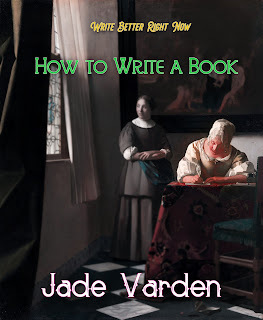
How to Write a Book, the first installment in my Write Better Right Now series, is coming out this month!
This book covers all the fundamentals of writing a book but it also takes a deeper dive into those burning questions all authors face. How should you handle sensitive subjects, like race? Should you use common plot devices, like love triangles?
The questions you've asked and the answers to the process of writing books are all covered in How to Write a Book.
Add it to your wishlist so you have it as the reference tool you really need to write better right now.
September 4, 2023
Get My Newest Book!
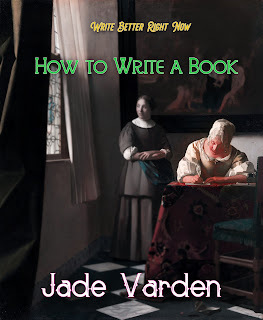
How to Write a Book
How to Write a Book is the first volume in my Write Better Write Now series. This book has all the tips and info writers need to know to write a book. The chapters cover crafting characters, writing believable settings, performing research and making all the decisions that indie authors have to make, not to mention all the controversial topics that are difficult to write about like race, profanity, sex and more.
September 2, 2023
The Striking Writers Have Asked for Support from All Creators
This is the message released by the striking writers and actors represented by the WGA (Writer’s Guild of America) and the SAG (Screen Actors’ Guild). The writers, actors and other creative professionals represented by these unions have asked for help and support.
Should indie authors and other non-union creators give it to them?

Writers on Strike The writers’ strike has been ongoing since May as the writers, actors and other creative professionals (this includes stunt people, voice actors, etc.) continue to butt heads with studio executives and media owners, such as Netflix and Paramount…and Disney, and NBC Universal and all of them.
Unions have the power to go on strike at any time, though it typically happens when the union and the company that employs the union (in this case, Hollywood producers and distributors) cannot come to terms on new contracts. This is the case with the WGA. Contract negotiations between the two sides broke down, and this launched the strike.
But this strike is not simply about how much money screenwriters earn. They also have significant concerns about AI software and how it will be applied to their writing, going forward. Actors have a similar concern regarding their likenesses and AI software’s ability to take those likenesses and create entirely new content using them.
The way AI writing software is used, and how human writers are going to be compensated for their writing, is a huge issue that affects all writers of all kinds in every single industry. AI software can now write books. As if things weren’t already difficult enough for indie authors.
A Show of Support
Because this issue is so huge and because negotiations have hardly gotten anywhere by the end of August, more than three months after the strike first began, the WGA has asked for a show of support from all creators of all types of content.
How can you help? First, you can post the script provided by the WGA on any and all content you create, so long as you are at liberty to do so according to your publisher. But beyond that, you can also refuse to accept any jobs or gigs or projects that would normally be completed by a union writer or actor.
The WGA and SAG have also asked creators to refrain from creating content based on content previously created by them that is being released during the strike. Discussing the latest movie or TV show on YouTube or in a blog post, for example, is something like a digital version of crossing the picket line, according to those on strike. If they are not being properly compensated for their work and cannot receive proper compensation for their work going forward, they ask that no one attempt to make money off of their work. After all, that’s exactly what the studios are attempting to do -- make money off the backs of writers and actors without meeting their demands as far as AI writing and video software is concerned.
The WGA has gone on record saying that content creators who virtually or physically cross picket lines and continue to create content they have been asked not to create will never, at any point in the future, be invited to join the WGA.
As of the writing of this piece, only WGA writers are allowed to produce scripts for movies and TV shows made in the U.S., no matter which part of the country they are made in.
August 30, 2023
What the Writer Strike is All About and What it Means to Indie Authors
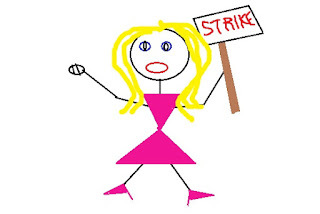 What's the Fight About?
What's the Fight About?The WGA is a labor union. This gives members of the union the right to collective bargaining. As union employees, the members of the WGA are under contract. When the business entity or entities that a union works for offers a contract that most members of the union do not like and do not want, they can then choose to use their collective bargaining power to force that company or companies to meet the demands of the union by going on strike.
To put it plainly, a majority of the members of the WGA do not like the contract they were offered. Writer's strikes are not uncommon and in the past, the WGA has used their right to strike in order to get more money for their work.
But this strike is very different. This strike is about money, sure, but it's also about a much deeper issue that affects all writers everywhere, union and indie alike: AI writing software.
How the WGA is Standing Up to ChatGPT and AI Writing
AI has been creeping into storytelling for several years. When Netflix recommends new movies and shows to you, that's AI at work. When Harrison Ford gets to be younger than he is in a film that's AI, too. Now, programs like ChatGPT are capable of writing movie scripts, TV show episodes. Blog posts, articles, novels. And that's why this issue touches all writers. Soon, directors won't need scriptwriters because they can simply type some prompts into a software program. Soon, writing a novel could be as simple as coming up with the root of an idea. And this is why the WGA is taking a stand now, and trying to establish some rules and receive compensation when AI is used in place of flesh-and-blood writers.
That makes it a pretty big deal. The Writers Guild of America and now the Screens Actors Guild of America are united on one side of the bargaining table. That is, roughly, all the Hollywood scriptwriters and all the Hollywood actors and actresses. They stand against the Alliance of Motion Picture and Television Producers. It's the talent versus the bosses, in short.
The writers and creatives say that under the new contracts, producers are seeking permission to use AI to generate new dialogue and create new scenes, extensively changing existing scripts, without the writers' knowledge or consent. As for the actors, they allege that producers are seeking the right to use their digital images and likenesses to create new performances using AI technology.
You can see why the creatives might not like that. And perhaps you can also see how this is a watershed moment for all writers everywhere. What happens in these negotiations could very well set the tone for how writers are compensated regarding AI software going forward, not just in Hollywood but in all industries. What about articles you write online that are significantly altered by AI? Should your name still be on them? Should you receive less compensation because AI was used?
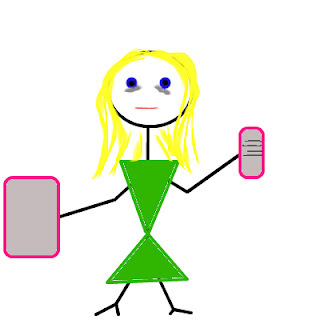
There are lots of questions to ask, lots of angles to consider and this is why the strike continues to drag on and on and on. It's brand-new territory and it's playing out right now, in real time. Precedents are being written in the moment. Decisions made today could affect a generation of writers or more.
It's pretty thrilling stuff. Anything brand-new is scary. Once upon a time, seeing the wheel for the first time terrified somebody. Simply using metal to cut a piece of meat was a gigantic innovation. AI writing software could be a civilization-changing innovation…or it could be a flash in the pan, a fad that quickly fades like others have done before. There is no way of knowing what will happen with AI software in the future, which is exactly the point of the strike. Writers and actors are seeking some protections now, some rules and a foundation laid in place now, because AI tools are only going to expand going forward from here.
What's the solution? What's the answer to the problem? Where do you fall in this debate? Plugging the questions into an AI program won't help.
For now, some solutions still take human minds and human words. Eventually, that will be enough to resolve the contract disputes and end the strike. Because for now, humans are still the ones leading the discussion. In a few years, depending on how these talks go today, that might not be the case.
August 22, 2023
What Readers Are Saying About Justice
When you build an entire life on a foundation of lies, it only takes one truth for the whole thing to come crashing down. I never invited the truth in. I never went searching for it. I never had any reason to suspect that the two people I loved most were dishonest with me every second of every day. I made one bad decision, and in a single day my entire world changed.
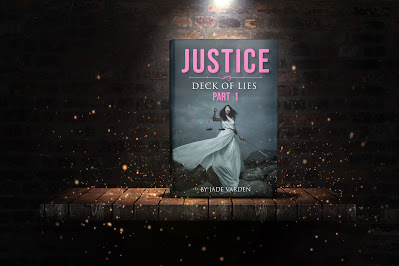
Recommended to all YA book lovers!
I seriously couldn't put it down once I started reading it.All the characters were nice and the story as a whole was amazing!
I'm so, so glad I got a chance to read such a wonderfulstory! There were many surprise elements neatly tucked into the story and justthe right amount of romance in it.
I could easily just relax and lose myself in the storywithout any problem. I really, really liked Ms. Varden's writing style. It wassimply superb!
- Josheka, Amazon
Oh wow! I LOVED thisbook!
Justice was well written, had a good pace, and had so manytwists to the plot it was really hard to work out what might happen next….Youdefinitely should go and download a copy after reading this review, I don'tthink you'll regret it.
- Kelly, havebookwillread
Gripping…the book kept a good pace throughout and includedlots of twists to keep me engrossed and in suspense of what was going to happenin Rain's life.
- Sienna @ Lost to Books
I was keen to findout how the story develops from the beginning - such is the quality of thewriting - but soon the reading became compulsive…the plot thickens quickly andthe protagonists faces several dilemmas that challenge her sense of belonging,loyalty and class.
- diebus, Amazon
This book is a rollercoaster of emotion, full of so manytwists and turns that it's hard to remember what's real. Everyone has secretsbut these secrets are unlike anything Rain has ever come across.
A book that's shrouded in mystery, tainted with sadness andfull of intrigue. Varden does not disappoint. I can't wait to read the next inthe series.
- SMoakes, Amazon
I LOVED every minute of it!! Nearly every passage hadsome sort of twists and turns and it kept wanting me to read page after page(seriously I sometimes stayed up until 5 in the morning just so I could finishthe book). Let's just say it left me thirsty to read the second book and try tofind (if that can be possible) all the delicious secrets that has been plungedinto poor old Rain's new and highly complex life.
- Nourin, Amazon
I bought this for my 14 year old daughter and have read itmyself. My daughter thought that it was 'awesome' hence the title of thisreview. This is a very well written novel. The characters are good and thestory is well thought out, told well and flows nicely. Also, the grammar andformat is of a high standard…I would recommend this to any teenager but will bereading the second instalment myself as I enjoyed it so much.
- jfholmes, Amazon
-Ruty, Amazon
What happens when everything you know is a lie? When yourlife is turned upside down? How can a single choice change EVERYTHING?
Rain is one of the girls you most can feel relate to, a bitshy, a little awkward at times , true to herself, and in the search of heridentity and is in the battle between who she wants to be and what other wanther to be that she finds herself.
About the other characters: River, Owen and Tom, are thetrio of boys we get to know in the book and I think they made the perfect teamwith Rain when it was needed. Each one has his moment in the story and bringssomething new to her life. And Carsyn is the perfect villain in the story,every good story has one, and she is plays her part perfectly.
…This is an EXCELLENT book -it doesn't matter if you labelit as YA, suspense, thriller, drama, what truly is important is that these is agreat book. Well written, with characters very developed, with greatbackgrounds and with the perfect amount of romance, action and secrets toresolve.
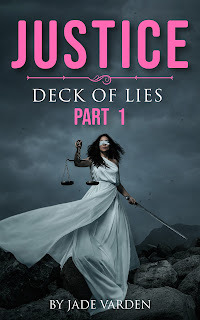
July 31, 2023
A Look Inside Justice, Deck of Lies Book 1
“We just needyou to sit in here. Someone’s already on their way over.”
“My parents weresupposed to be on the way over! Where’s my mom?” I could feel the tearsbubbling in my eyes. Why wouldn’t anyone tell me what was going on? Had Carsyndenied my story? Did the store say I was shoplifting after all? Was I going toget charged with a crime? And why was my dad in handcuffs?
“Just sit inhere.” We were back in the waiting room.
“Please,” a fewtears spilled out of my eyes and down my cheeks. “Just tell me what’shappening.”
He must have taken pity on me,because I saw something soften in his expression. “Your mom and dad are beingheld for questioning right now.”
“Questioning?But they didn’t have anything to do with the bracelet. I didn’t even call totell them I was going shopping. I’m probably in trouble for that already. Theyreally didn’t know about any of it!” I desperately tried to explain.
“It’s not aboutthe bracelet.”
I frowned. “Then…what’sit about?”
Obviously heregretted getting into this conversation with me. He looked down at the toes ofhis boots before answering, and when he looked up he wouldn’t meet my eyes. “Youwere flagged in the database as a missing person.”
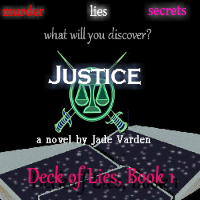
“But I’m notmissing. I’m right here.”
“A social workeris on her way. She’ll be here any minute to explain it to you.”
“But I don’tunderstand. What crime are my parents being questioned about?” I asked.
He cleared histhroat before answering. “They’re being questioned about a kidnapping, Rain.”
It didn’t reallysink in right away. The word kept bouncing around in my suddenly-empty head, completelydevoid of all meaning. Kidnapping.
But why wouldthe police want to question them about something like that?
I wouldn’t getan answer for thirty-five minutes, the amount of time it took for the socialworker to arrive. I made about a dozen calls on my mobile phone to Aaron, mymom and dad and the house phone, but no one answered and I just listened toempty, hollow ringing as my tension mounted. Finally the social worker camebursting into the room, but I heard her coming well before the door flew open.She was wearing the clunky, square-heeled kind of shoes that made loud,clip-clopping sounds on the linoleum floor. There was a run on the left leg ofher pantyhose, and I could see a bit of lace where her hem was slipping pasther wrinkle-resistant polyester skirt. It was a nondescript brown color, likeher hair, and a poor match for the blue blouse she wore under the matchingjacket.
“Rebecca Keene,Child Protective Services,” she introduced herself immediately, thrusting apale, cold hand out toward me. I shook it automatically. She pulled backquickly, flipping open a manila folder to glance at it before looking back upat me. “You must be Chloe.”
“Chloe? No. I’mRain Ramey.”
“Ramey. Ramey,”she flipped open the folder again, turning pages. “Yes of course. Rain, right?”
“That’s me.” Inodded. Then, all the questions came exploding out of me. “What’s going on?Where are my parents? The policeman said something about kidnapping?”
She brushed alock of hair out of her eyes. It was just one of many tendrils that had escapedthe bun at the nape of her neck. Rebecca Keene looked tired and harried, and I’dnever missed my mother more than I did in that moment. “That’s right, Rain.Your parents are still being questioned in connection with an infant girl whodisappeared more than fourteen years ago.”
My head tiltedto one side as I stared at her. “But it’s all just a misunderstanding. Myparents haven’t kidnapped anybody.”
Rebecca Keenegazed at me before her eyes lowered to the folder in front of her. “Today, thechild would be sixteen years old. At birth, she had blue eyes and blonde hair.Like all babies born in the Silverwood Hospital since 1985, her fingerprintswere taken shortly after she was born. The fingerprints found a match for thefirst time tonight,” her dark green eyes found mind before she continued. “Whenyour ten-print card was ran through the database.”
My ears wereringing again. I felt my fingertips go numb. My eyes were cloudy; it seemed asthough I was looking at Rebecca Keene through fog. “I don’t understand.”
“Rain, you are amatch for that missing child. Arthur and Rhianna Ramey are not your naturalparents. They abducted you from your home when you were eighteen months old.”
Get Justice at Amazon, Smashwords and everywhere books are sold!
July 24, 2023
10 Pieces of Fashion with a Surprising Military History
There are fashions you wear every day that are so ordinary, so innocent and so simple, you would never think they all began from very violent military origins.

Khakis
Khaki is a color but it's used so frequently in pants, the word "khaki" alone is enough to describe a pair of paints in a nondescript, light brown sort of color that has become the uniform of customer service representatives around the world. It's a color that has been used to make everything including pants, from home furnishings to curtains. You can even get khaki car paint.
Today, khaki is associated with the most benign fashion and decor. It's downright boring, vanilla, run-of-the-mill. And yet, this color has a rather violent past.
The year was 1846 and the British military had been occupying India for about 70 decades. The British, being British, wore heavy wool uniforms in bright red, the same kind of stuff they were wearing when they fought the colonists in America in the 1770s.
And frankly, the uniforms were heavy and bright and ridiculous.
Indian soldiers didn't wear heavy wool. They wore lightweight cotton that they smeared with local mud and sometimes tea. This created a light brownish color shade. It was noticed by Henry Lumsden, who was leading the Corps of Guides for Her Majesty the Queen.
Lightweight khaki-colored garments were adapted by the British and by 1848, official uniforms were issued. The color spread from there and became synonymous with lightweight cotton pants. The word khaki comes from Hindustani for "soil-colored."
Before 1914, men didn't really wear shorts. Like, at all. Shorts were for children, maybe athletes sometimes. Men wore pants. At least, they did.
But sometimes, it's just not practical. Like in the year 1914 in Bermuda. The world was at war and there were British soldiers stationed on the island. And what do British soldiers like to drink? That's right: tea.
Coxon's Tea Room was hot and crowded thanks to the new rush of clients. The servers were having trouble maintaining energy in the stuffy space. So Nathaniel Coxon came up with an idea: put them in shorts. He envisioned somewhat long shorts made in a lightweight material that would be cool and comfortable to wear, breezy and easy in the hot tea room.
Admiral Berridge of His Majesty's navy was taking his tea at Coxon's when he noticed the effect the short pants had on the servers. He decided to put his men in Bermuda shorts, too, and soon most of the British military stationed on the island had on short pants. When vacationers to the island noticed the shorts, they embraced them and took them back to England and America. Soon, Bermuda shorts caught on everywhere.
Plaid is heavily associated with Scottish history but the pattern has a long military history, too. Used in Scotland from at least the 1700s to identify particular family and clan affiliations based on color and pattern, plaid became military wear in 1745. This is when the Royal Highland Regiment wore the now-famous Black Watch pattern. It had no clan affiliation and it became the look of the Scottish rebellion.
It wasn't a symbol for long. The Scottish were defeated in 1746 and the British created the Dress Act, which banned tartans outside of military wear. Plaid and tartan became associated with the military but also a symbol of Scottish heritage. When it make its way to the U.S. near the turn of the century, it became a popular fashion staple.
The cardigan is associated with learned professors, with soft and comfortable warmth, with all things non-threatening. This makes it extra ironic that this piece of fashion is associated with one of the worst military disasters of all time.
The cardigan came to fame during the Crimean War and would become immortalized in the Charge of the Light Brigade in 1854. James Thomas Brudenell wasn't much of a military strategist. But he was quite the natty dresser, apparently. Brudenell, an officer in Her Majesty's army, dressed his men and himself in a striking trimmed waistcoat made out of wool.
Brudenell was the 7th Earl of Cardigan and he became linked with the ill-fated charge, during which he led his troops to their certain doom with far more arrogance than the situation warranted. But his name became linked, too, with the fancy wool waistcoats that became popular after this military disaster.
The cardigan changed over the years and finally took on its final form, but its origin story is one of bloodshed and battle and mistakes.
Everyone owns a T-shirt, everyone has a favorite T-shirt, everyone knows this is this is a go-to casual garment you can wear any time, all the time. But there was a day before the T-shirt ever existed. And because the T-shirt exists now, you can thank the British navy.
Wearing a rather loose-fitting cotton or linen shirt under clothing was something men did dating back to the medieval era. But it wasn't until new knitting methods were invented that the shirts became more form-fitting, more refined, more like the modern T-shirt.
In the late 1800s, British sailors were commonly wearing white flannel undershirts beneath their wool uniforms. The British Royal Navy allowed them to wear just these undershirts while on the deck. In the 1880s, the U.S. Navy included similar loose flannel shirts as part of their standard uniform. They were known as "lightweight short-sleeve white cotton undervests."
In 1913, Cooper Underwear Company changed the game. They began producing "bachelor undershirts," which had the more modern shape and design of today's T-shirts. It wasn't until 1920 that the word "t-shirt" became a thing and now, it’s one of the most worn piece of fashion in the world.
The HMS Blazer takes credit for being the namesake and birthplace of the blazer, which some say was first worn by the crew of the frigate in 1837. The crew was part of Her Majesty's Royal Navy and when Queen Victoria herself visited them, they wanted to look their best. They wore double-breasted jackets with gold buttons to impress her and look quite polished.
Others say that the blazer was actually worn first by Oxford and Cambridge students while rowing. Either way, the blazer did become popular with students and with many, many other people during the mid-1800s.
Before the 1900s, only women wore wristwatches. It didn't much matter if they worked, either, as wristwatches were more about being fashionable than about keeping the time. All men wore pocket watches, if they had watches at all.
Pocket watches were supremely inconvenient during the first World War. Men in the trenches found that checking the time was a deadly practice. It became the fashion to attach pocket watches to the wrist to make things easier.
In 1917, Cartier designed the now-iconic Tank watch. Soon, trench watches caught on with soldiers and in a few years, wristwatches were a fashion standard among both genders.
The belt is probably one of the oldest pieces of fashion ever invented. People in the Stone Age wore wraps and pelts that were cinched around their bodies with cords. Ancient Greeks and Romans used belt-like cords to keep their tunics closed. Roman fashion would have looked quite different otherwise.
But belts in a more modern form first appeared on the knights of the medial era. They wore elaborate great belts with buckles that held swords and other items. These belts were thicker, heavier, more substantial than the simple cord belts of the past. The buckle closure on this version of the belt closely resembles the modern buckle that's in use today.
Knit caps that keep the head warm date back to ancient times. They were worn by soldiers in the 1830s during the Lower Canada Rebellion, waged between French Canadian patriots and British colonial authorities.
But the modern snug-fitting beanie first appeared as watch caps that were born by Navy soldiers during WWII. When civilians started wearing beanies, bright colors and patterns became a regular part of the design.
Scarves are highly practical garments that keep you warm, so it makes sense that they are thousands of years old. But historical evidence suggests that scarves began as a military garment. They were used to identify military ranks. Ancient Chinese warriors used them and men fighting in the trenches in WWI wore them. Scarves have a long, long military history.
The bright scarves worn by Croatian mercenaries during the Thirty Year War, which lasted from 1618 to 1648, caught the eye of fashion-forward French people. They called the neckwear la croate or la cravate, and started wearing it fashionably. This thin, short scarf was the grandfather of the modern necktie.
Sources:
BBC - The T-shirt: A rebel with a cause
https://www.bbc.com/culture/article/2...
Country & Town House - The Very British History of the Blazer
https://www.countryandtownhouse.com/s...
The Dreamstress - Terminology: the history of the cardigan
https://thedreamstress.com/2016/04/te...
Encyclopedia Brittanica - girdle
https://www.britannica.com/topic/gird...
Gentleman's Gazette - Why Did Men Start Wearing Belts?
https://www.gentlemansgazette.com/men...
Heddels - The History of Khaki: Anything But Drab
https://www.heddels.com/2019/05/histo...
Heddels - History of the Watch Cap – From Monmouth to The Monkees
https://www.heddels.com/2017/12/histo...
Jetset Times - The Fascinating History Of Bermuda Shorts
https://jetsettimes.com/countries/ber...
Real Men Real Style - 11 Style Items With A Military Heritage
https://www.realmenrealstyle.com/styl...
Stitch Fix - The History of Plaid
https://www.stitchfix.com/men/blog/fe...
The New York Times - Wrist Watches: From Battlefield to Fashion Accessory
https://www.nytimes.com/2013/10/23/fa...
Vogue - Everything to know about the history of the blazer
https://www.vogue.com.au/fashion/tren...

